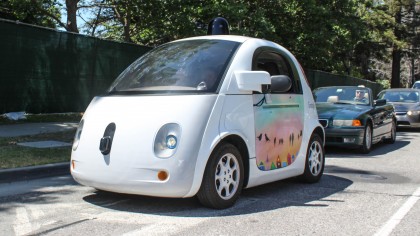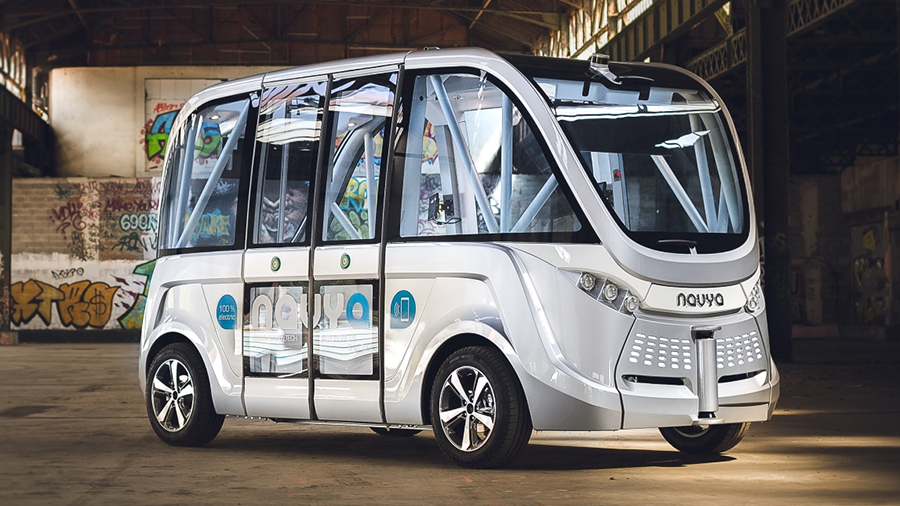Obama anticipates a future economy challenged by driverless cars and automation
Tech is changing the way we think about work

Former US President Barack Obama is speaking out on automation and driverless cars, namely the impact the futuristic tech – that’s closer to reality than it once was – could have on the economy.
Obama, writing in The Guardian, discusses a number of issues related to climate change, including food security and the changing workforce. He shares a concern that with technology comes increased automation; it happened in manufacturing, and now it’s taking place across the service and managerial sectors.
As people lose jobs to machines, workers don’t just lose out on income, but a “lack of meaning and purpose” that can be damaging to themselves and society. He calls driverless cars “the best example of the kinds of issues that we’re going to face.”
“Driverless cars are coming,” Obama writes. “The technologies are here and eventually the regulatory barriers are going to break down.”
There are positives to self-driving cars; the tech can provide a “safer, more fuel-efficient, and more convenient” transportation system than we currently have. However, this will likely come at the expense of human workers.
“…in the United States alone, there are 3 or 4 million people who make good livings just driving,” Obama writes. “And where are they going to work, if suddenly trucking and buses no longer need drivers? We have to anticipate those things now.”
The new, new economy
Many tech companies, including some of the biggest ones on the planet, are developing autonomous driving technologies and self-driving cars.
Get daily insight, inspiration and deals in your inbox
Sign up for breaking news, reviews, opinion, top tech deals, and more.
Alphabet, parent company of Google, has an entire subdivision dedicated to self-driving cars in Waymo. The company envisions a future where personal vehicles, ride-sharing services, trucking and public transportation all tap into autonomous driving features.
Tesla is a major proponent of self-driving – Autopilot is one of its vehicles’ marquee features. The company is also developing an all-electric truck, which will have some autonomous driving features.
Ride-sharing service Uber already uses self-driving cars to cart passengers around in select cities, and Apple’s self-driving car ambitions aren't a secret anymore. Ford, Honda, BMW and many more are all testing self-driving cars.
While human operators are still required by law in these vehicles, the day when they aren’t, or fewer operators are needed, likely isn't far away.

Obama writes that in order to come to terms with a society in which people work less and jobs are more widely distributed, we’ll need “a reorganization of the social compact.”
“That requires that we change our mindset about the link between work, income and the value of people in the teaching professions, or healthcare, or certain things that cannot be done by AI or a robot.“
Obama doesn’t have all the answers, but he encourages that we begin to discuss how we think about work and its value now in order to be prepared for a future where “technology will have eliminated entire sectors of the economy.”
“How do we start creating, or at least having a conversation in our society about making sure that work and opportunities are spread, and that everybody has the chance to live a good and fulfilling life, rather than having a few people who are working 80 or 90 hours a week, and making enormous incomes, and then a large portion of redundant workers that increasingly have a difficult time supporting families.
“That’s not a sustainable mechanism for democracy and a healthy society.”
Obama’s message is a sobering one, but perhaps it’s just what’s needed as we face greater challenges as a society, both good and bad.
Michelle was previously a news editor at TechRadar, leading consumer tech news and reviews. Michelle is now a Content Strategist at Facebook. A versatile, highly effective content writer and skilled editor with a keen eye for detail, Michelle is a collaborative problem solver and covered everything from smartwatches and microprocessors to VR and self-driving cars.
